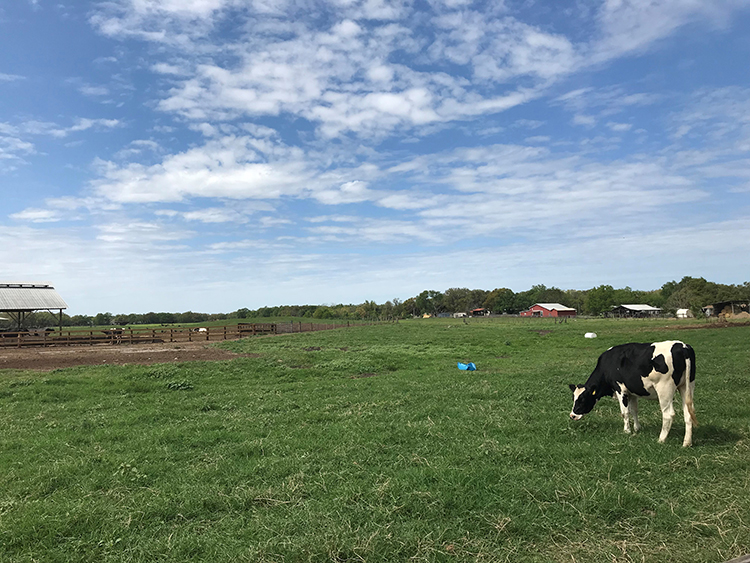
Last year, I read a post from Jennifer (@albertafarmlife) on Twitter that made me laugh. It said, “I love the ‘farmhouse’ décor trend. I do. It’s cute. But who do they think they’re kidding? Actual farmhouse décor includes syringes by the sink, cattle meds in the fridge, dirty boots at the door, maybe a grain sample on the counter. And NOTHING is painted white. NOTHING.”
The ag community could relate, as this was circulated and reposted countless times. I took a screenshot and sent it to my sister, and we exchanged laughs. It was so true: the trend that is labeled as a representation of a farm lifestyle is so far from our reality. Farm landscapes and cows may be picturesque, but the work done behind the scenes isn’t always, and rarely do non-farm consumers get the chance to see that.
Farming by its nature offers many lessons in humility. But what if all that humble pie is hurting our industry’s health? Farmers do not often talk about how hard they labor or how much they care for their animals; they just work and love. Farm families are all in it together, and there’s no keeping score. Hence, talking about what they do all day just doesn’t feel right. They’re just doing their job. Meanwhile, those off the farm are telling our stories.
The majority of people in our nation have no connection to a farm. They have never been on a farm; they have never met a farmer. They don’t know what farmers do, and they don’t know how our animals are truly cared for or our products are made. Everything they know about our food supply has come to them third party. Consequently, when polled, consumers say they want to know more about their food supply. They want to know where their food comes from and what farmers actually do.
Farming isn’t sexy. It’s an everyday grind that requires dedication and resilience. Wake up, work, go to sleep, and repeat. It may not seem all that interesting to us, but to many, it is so foreign that their curiosity cannot be curtailed. They cannot fathom what life is like on the farm. They yearn to know and understand, so let’s give them what they want.
In the checkout line at the grocery store, look over and notice the young woman buying butter. Mention to her that you’re a farmer, and you appreciate her support. Just a few simple words can foster that connection. Likely the next time she buys a dairy product she will remember you. She will know where her food comes from. We can’t meet everyone in person, but those that we do we can positively impact.
Fortunately, social media can bridge the gap with those beyond our stomping grounds. Farmers are often parents, sports enthusiasts, craftsmen, and dog lovers just like everyone else. We are relatable, and what we have in common with those from other walks of life will ultimately allow us to make connections. When others can relate to us, that establishes a foundation of trust. Tell your story; video your routine. Show them how hard you work and how much you care.

Erin Massey is the product development manager at Prairie Farms, a farmer-owned cooperative based in Edwardsville, Illinois. She is responsible for overseeing all aspects of the development process, from concept to commercialization. Erin grew up on a Florida dairy farm and has a deep-rooted passion to invigorate the dairy industry. Erin earned a bachelor's degree in chemical engineering from the University of South Florida. Her personal mantra is "Be Bold."